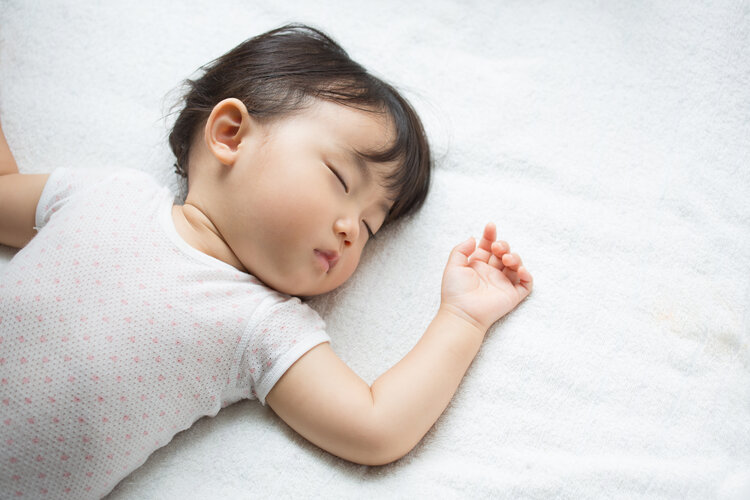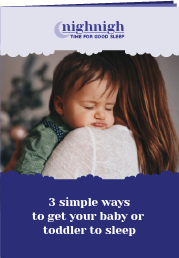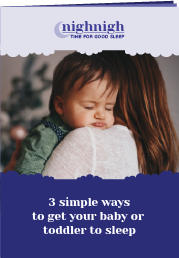Parents can help their baby sleep when they understand sleep biology
Why won’t my baby sleep?
Helping your baby sleep better isn’t just about picking an ideal sleep time and sticking rigidly to that in order to establish a sleep routine. Your baby has to develop physiologically, for sleep to occur quickly, achieve longer sleep, and for sleep to occur at the right part of our 24-hour circadian rhythm clock. This biological process is termed intrinsic or internal and is complete by the time your baby is six months old. Although this developmental milestone is hugely significant, some babies are easy sleepers long before their internal physiology is really developed and other babies will be internally ready for good sleep but need to be shown how to sleep well. You’ve probably heard of babies sleeping well within the first few months and when your baby is waking a lot overnight, with quick day naps lasting less than one sleep cycle, it can be a bit hard to take.
My baby will learn to sleep in their own time
Parents can be confused about and ill-advised when to intervene with sleep and often wait way too long thinking that their LO will sleep when they are more mature. However, parents can still influence their babies sleep using extrinsic (external) factors that may be related to sleep hygiene, timing and actioning sleep that supports the natural biological process, even before 6 months. This means parents can provide conditions that make sleep easier (or harder).
Babies can have insomnia
Now that we know that sleep can be influenced both internally and externally, it is important to understand that sleep interventions can make sleep worse. Often advice that is rigid about sticking to an exact time for sleep can be very stressful for babies that are not sleepy, and the result is often a distressed crying baby and frustrated parents that see no settling and sleep success. That’s not to say that sleep routines are not essential but how you get your baby’s routine established needs to be based on assessment of their individual sleep behaviour and actioning therapy to help baby sleep better.
Biological processes need to be considered in part of the diagnosis for insomnia…yes babies can have insomnia. Therapies used to correct biological processes that are mis-aligned with good sleep need to be addressed along with attention to sleep hygiene and parent behaviour. At nighnigh.com we treat all ages because many solutions overlap across the lifespan, when you treat sleep problems.
Our strategy is about 3 R’s to sleep success – Routine, Re-connection and Relaxation and making sleep adjustments based on circadian rhythm and sleep timing. This means babies can learn to sleep better without feeling stressed and parents can avoid the often very long journey of chronic sleep deprivation.

Routine is only part of the better sleep journey






